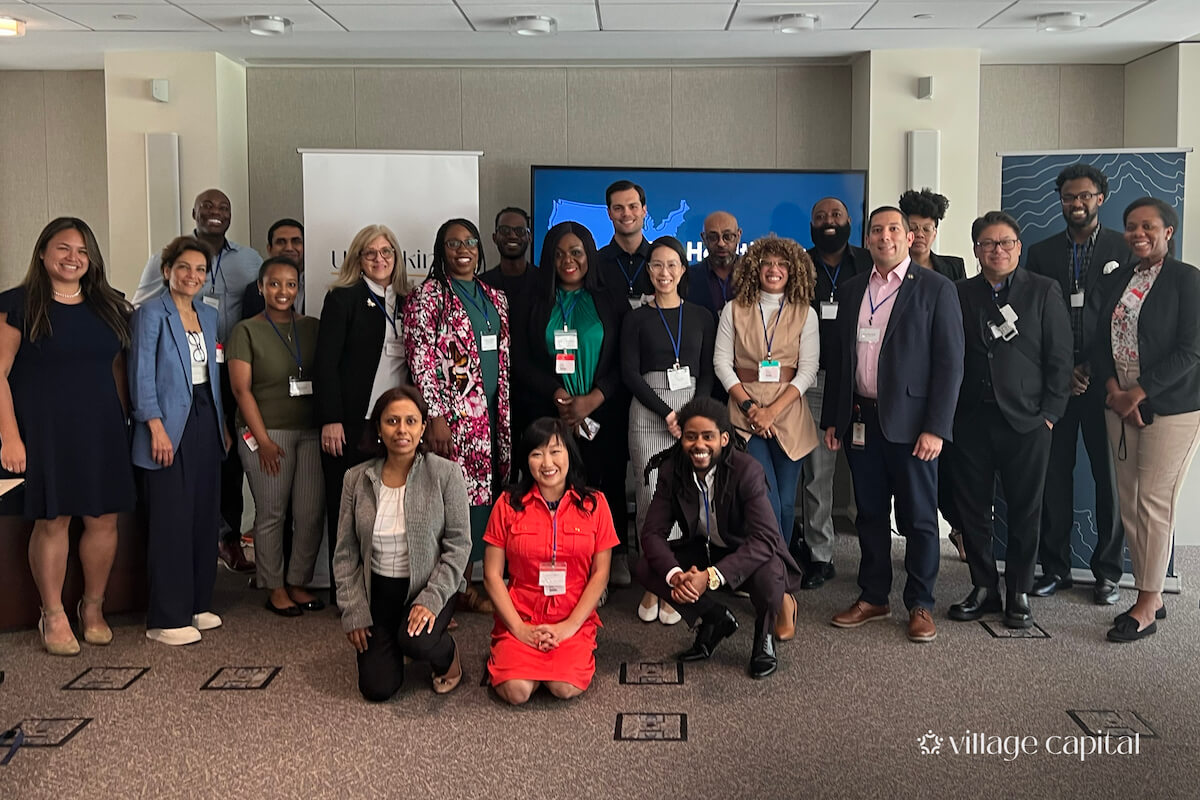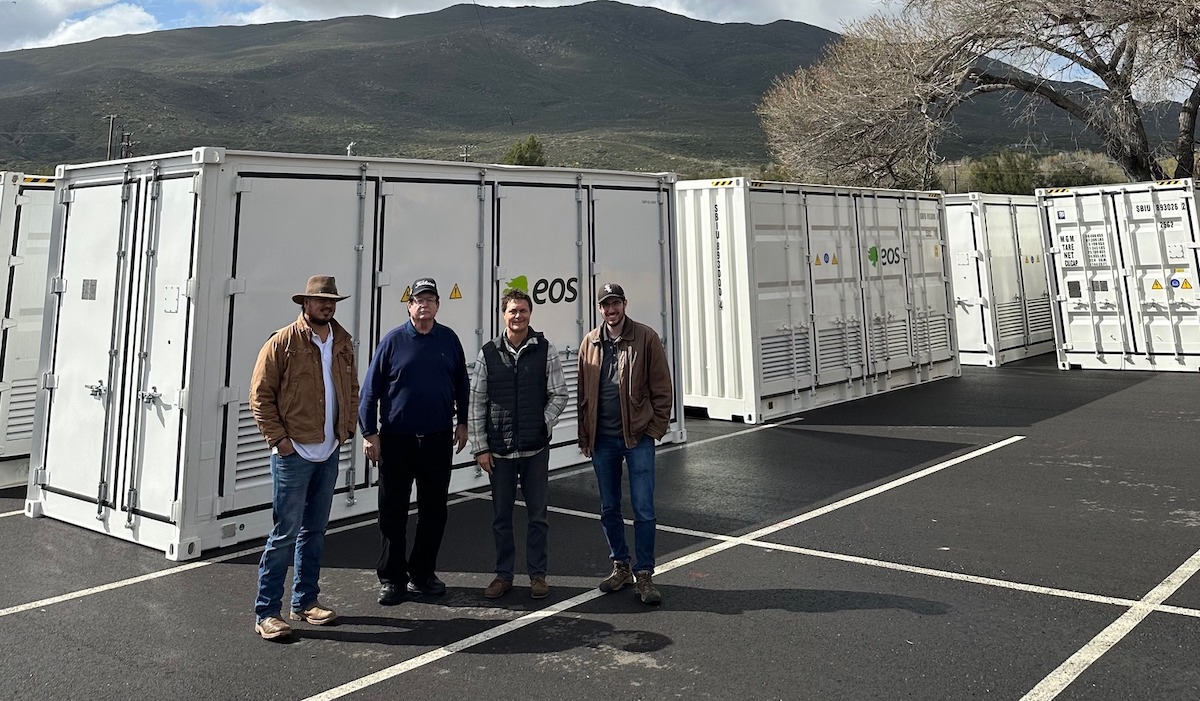The middle market is immense, as is the opportunity for uplift among the low-income people who make it work.
That’s the investment thesis of New York-based Lafayette Square, the investment firm started by Damien Dwin in 2020, to provide private credit to middle market manufacturing, wholesale, franchising, transportation, construction, health care and other businesses primarily located in low to moderate income census tracts. The firm detailed its strategies in its annual 10-K report filed with the Securities and Exchange Commission.
The filing provides insights into the strategy of the firm, which has kept a low profile while assembling a deep bench of impact and finance talent. Morgan Stanley seeded Lafayette Square with a $100 million equity investment.
The firm makes senior debt investments in the roughly 200,000 “middle market” businesses with revenues between $10 million and $1 billion. Those businesses represent about one-third of private-sector economic activity and employ more than 48 million people, the firm says.
“Low-to-moderate income workers are essential to our economy and bear a disproportionate financial burden, particularly during times of inflation,” Dwin wrote in sharing the 138-page filing last month. “Monitoring where capital flows geographically and the types of benefits that workers receive is worthy of attention.”
LMI market
Lafayette Square’s loan book is still small. By the end of 2022, it had invested $85.5 million in five companies, mostly in senior secured loans with interest rates of 11-13%. Most of its loans, which are unrated, would be considered “high yield” or “junk” bonds, the company says in the filing.
Lafayette Square helped finance the acquisition by the employees, via an ESOP, for Zero-Waste Recycling in Charlotte, N.C. a manufacturing waste by-product collection and disposal provider. The firm also provided capital to Rotolo Consultants Inc., a landscaping design-and-build company operating in the southeast U.S., and to a Black-owned ad tech company in Houston.
Last year, Lafayette Square partnered with Invenergy, one of the largest solar and wind project developers, on a joint venture called Reactivate. The partnership is looking to invest half a billion dollars in dozens of community solar projects by next year.
At the end of last year, 40% of companies in Lafayette Square’s portfolio had headquarters or substantial operations in underserved areas. Two-thirds of the portfolio companies’ total of 1,383 employees, or 912 individuals, have low- to moderate incomes, or LMI.
The firm aims to deploy more than half of its invested capital in areas considered LMI or in “empowerment” or “opportunity” zones, or redevelopment areas, as well as to companies with workforces at least half composed of LMI employees. The company says it requires borrowers to provide data to meet its LMI targets and to measure its investments’ effects on workforces. The company has set as its goals to help businesses create or retain 100,000 LMI jobs and 150,000 jobs overall.
The company included a chart in its 10-K to show the low proportion of loans that flow to low- and moderate-income census tracts from publicly traded business development companies (Lafayette Square says it has no plans for a public listing). In California, for example, only 109 out of 523 BDC-financed companies were in LMI census tracts. In Texas, it was 73 out of 312, and in New York, 18 of 289.
Lafayette Square had raised $170.2 million as of the filing. Total requests were close to $300 million, but the firm has accepted less than half of that due to concentration limits with a certain investor. Early funding came from Morgan Stanley, which made a $100 million equity investment to help launch the firm, and a $200 million debt commitment from Prudential spin-off M&G.
Layfayette Square declined to comment for this article.
Worker solutions
The firm files with the SEC because it is structured as a private business development company. BDCs, as they are known, are able to tap a broader type of investors, with fewer regulatory hurdles. The catch: BDCs are required to offer managerial assistance to their portfolio companies. The requirement is generally honored in the breach: the services are cursory and the uptake by companies is low.
Lafayette Square presents its Worker Solutions unit as not only compliant with the requirements, but as a key driver of business growth. The unit works with portfolio companies to improve access to traditional benefits like health care and retirement and tailor additional for low-to-moderate income workers, such as matching savings programs.
The bet: increasing employee retention, morale and productivity can reduce risk. The Worker Solutions unit is co-headed by Don Baylor, Jr., formerly of the Annie E. Casey Foundation, and Antony Bugg-Levine, who led the Nonprofit Finance Fund. Dwin credits early conversations with the Ford Foundation’s Darren Walker around the delivery of capital and services to local communities.
Currently, Lafayette Square companies have higher turnover and lower participation in retirement and health benefits than the national average.
“We believe that over time, our portfolio companies’ uptake of third-party solution providers, in combination with our capital, will contribute to an improvement in the metrics,” the company said.
The filing details Lafayette Square’s further designation as a Small Business Investment Company, or SBIC. The designation from the Small Business Agency makes it eligible for up to $175 million in long-term capital in the form of SBA-guaranteed debt.
“We believe the implementation of an SBIC under our BDC structure allows us to specifically target and inject capital into American businesses that are on the lower end of the middle-market,” the company says in the filing
The firm also stood up Potomac X Lafayette Square, a data analytics platform that “informs risk decisions based on localized data sets regarding socioeconomic indicators.” The company plans to offer the analytics tools to other mission-aligned investors.
Lafayette Square says regulatory and structural changes have reduced the amount of capital available to middle market companies by increasing capital and liquidity requirements for banks and dampening their appetite for non-investment grade loans on their balance sheets.
“The U.S. government has struggled to provide financing efficiently and sufficiently to small and medium-sized businesses throughout the COVID-19-related economic shutdown,” the filing says. Lafayette Square believes it “offers a solution to this limited amount of capital available to middle-market businesses in the United States.











